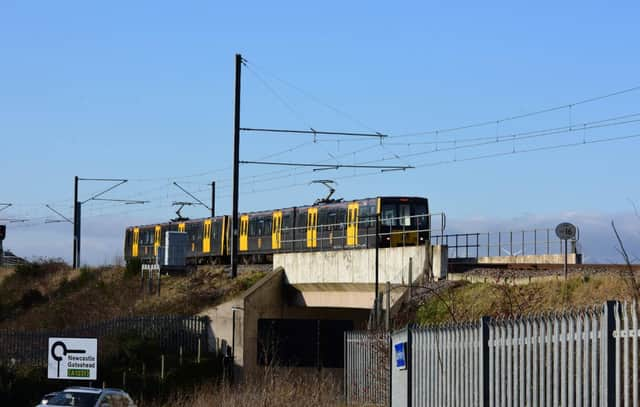Call to keep Metro fares 'affordable' so North East can bounce back from pandemic


Ticket prices on the network are usually hiked in the New Year, but rises have been put on hold this time around until April at the earliest.
The delay is partly due to on-going bailout negotiations with ministers after the COVID-19 pandemic caused a slump in passenger numbers.
Advertisement
Hide AdAdvertisement
Hide Ad“We’ve so far received over £33million [from the government], with a further £7.5million dependent on the development of a recovery plan by the end of the year,” said Martin Kearney, chief operating officer at Metro operator Nexus.
“Nexus is recommending this year’s fare review is deferred until January 2021, with changes taking effect from April 1, 2021.
“This will allow further time for discussions with the DfT and analysis and modelling of a fare increase.”
Kearney was speaking at a meeting of the North East Joint Transport Committee’s Tyne and Wear Sub Committee, which was held by videolink and broadcast via YouTube.
Advertisement
Hide AdAdvertisement
Hide AdUsual fare rises for the Shields Ferry service are also due to be deferred for now and considered at the same time at Metro tickets for ‘consistency’.
The decision to hold off was praised by panel chairman, South Tyneside Council’s Gladys Hobson, who claimed it would be ‘inappropriate’ to consider price hikes at a time many families in the region are ‘struggling financially’.
She was backed by John McElroy, of Gateshead Council, who added: “We’ve got a hard task coping with COVID and attracting people back to public transport as it is.
“It is a safe system, but we have got to be attractive in terms of fares and we’ve got to make sure any increases are affordable because there is a great deal of financial pressure on individuals.”
At the peak of the first national coronavirus lockdown, Metro passengers slumped to barely five per cent of their pre-COVID levels.
The number of travellers on the Tyne and Wear network has since recovered faster than the London Underground, but has still struggled to reach half of what it was before the pandemic.
Advertisement
Hide AdAdvertisement
Hide AdYou can subscribe to this website and enjoy unlimited access to local news, information and puzzles online. With a digital subscription, you can read more than five articles, see fewer ads, enjoy faster load times, and get access to exclusive newsletters and content. Simply click ‘Subscribe’ in the menu.